Glasurit Worldwide
PROTÉGER L’ENVIRONNEMENT EST DANS NOTRE NATURE
Diminuer les émissions de CO2 tout en continuant à fabriquer des produits de réparation automobile de première qualité : voilà le défi que nous nous sommes lancé. Toujours soucieux de fournir à nos clients des produits de qualité, nous attachons également beaucoup d’importance aux valeurs sociales et écologiques.

Défilez vers le bas pour en savoir plus sur le principe.


Nous aurions pu faire 1007 fois le tour de la Terre !
Depuis le lancement des produits ECO BALANCE, nous avons économisé environ 4440.17 tonnes de CO2, soit 40,387,768 km ! (*)
(*)BASF product carbon footprints are calculated following general standards for life cycle assessment and product carbon footprints. The product carbon footprints are assessed cradle to gate, i.e. without CO2 emissions caused during product application and end-of-life treatment. Our product carbon footprint data is based on assumptions and approximations valid at the time of data collection. For more information, please visit https://www.basf.com/global/en/who-we-are/sustainability/we-drive-sustainable-solutions/quantifying-sustainability/product-carbon-footprint.html Eco Balance products contribute to reducing the use of fossil resources and reducing the CO2 emissions via the biomass balance approach. For our biomass balance products, 100% of the feedstock required for these products have been replaced by renewable resources. All our Eco balance products are certified according to the RedCert² standard. (BASF certification number REDcert²-929-35346515). For more information, please visit https://www.redcert.eu. When reference is made to CO2 savings per traveled kilometer, a standard CO2 emission of 95 grams per travelled car kilometer is assumed. Here you can find more information about BASF’s biomass balance approach: https://www.basf.com/en/bmb
Défilez vers le bas pour en savoir plus sur le principe.










































































UN CALCUL TRÈS SIMPLE...
En général, les peintures pour carrosserie se composent principalement de ressources fossiles, comme le naphta.
Défilez vers le bas pour en savoir plus.



















N CALCUL TRÈS SIMPLE...
En général, les peintures pour carrosserie se composent principalement de ressources fossiles, comme le naphta.











PLUS DE RESSOURCES RENOUVELABLES, MOINS DE RESSOURCES FOSSILES
La méthode nous permet de remplacer une part des ressources fossiles du « Verbund en production » BASF par des ressources renouvelables.


























PLUS IL Y EN A, MIEUX C’EST
L'approche « Biomass Balance » implique l’utilisation de ressources renouvelables telles que le bionaphta ou le biogaz (dérivés de déchets organiques ou d’huiles végétales) associées aux ressources fossiles déjà utilisées dans la fabrication de produits de base.







L’ÉQUATION
La part de biomasse est ensuite allouée mathématiquement à certains produits commerciaux, conformément à la méthode certifiée.











VOTRE IMPACT
Votre achat a donc un impact sur le pourcentage total de ressources renouvelables introduit dans notre production.










UNE QUALITÉ IDENTIQUE
Les produits Glasurit Eco bénéficient de la même qualité exceptionnelle que nos autres produits. Toutefois, en les utilisant, vous contribuez à augmenter la part de ressources renouvelables se retrouvant dans notre processus de fabrication.


Nous aurions pu faire 1007 fois le tour de la Terre !
Depuis le lancement des produits ECO BALANCE, nous avons économisé environ 4440.17 tonnes de CO2, soit 40,387,768 km ! (*)
(*)BASF product carbon footprints are calculated following general standards for life cycle assessment and product carbon footprints. The product carbon footprints are assessed cradle to gate, i.e. without CO2 emissions caused during product application and end-of-life treatment. Our product carbon footprint data is based on assumptions and approximations valid at the time of data collection. For more information, please visit https://www.basf.com/global/en/who-we-are/sustainability/we-drive-sustainable-solutions/quantifying-sustainability/product-carbon-footprint.html Eco Balance products contribute to reducing the use of fossil resources and reducing the CO2 emissions via the biomass balance approach. For our biomass balance products, 100% of the feedstock required for these products have been replaced by renewable resources. All our Eco balance products are certified according to the RedCert² standard. (BASF certification number REDcert²-929-35346515). For more information, please visit https://www.redcert.eu. When reference is made to CO2 savings per traveled kilometer, a standard CO2 emission of 95 grams per travelled car kilometer is assumed. Here you can find more information about BASF’s biomass balance approach: https://www.basf.com/en/bmb
Naviguez pour en savoir plus sur le principe.
Découvrez la méthode éco-responsable pour la production de produits de réparation carrosserie.


Nous aurions pu faire 1007 fois le tour de la Terre !
Depuis le lancement des produits ECO BALANCE, nous avons économisé environ 4440.17 tonnes de CO2, soit 40,387,768 km ! (*)
(*)BASF product carbon footprints are calculated following general standards for life cycle assessment and product carbon footprints. The product carbon footprints are assessed cradle to gate, i.e. without CO2 emissions caused during product application and end-of-life treatment. Our product carbon footprint data is based on assumptions and approximations valid at the time of data collection. For more information, please visit https://www.basf.com/global/en/who-we-are/sustainability/we-drive-sustainable-solutions/quantifying-sustainability/product-carbon-footprint.html Eco Balance products contribute to reducing the use of fossil resources and reducing the CO2 emissions via the biomass balance approach. For our biomass balance products, 100% of the feedstock required for these products have been replaced by renewable resources. All our Eco balance products are certified according to the RedCert² standard. (BASF certification number REDcert²-929-35346515). For more information, please visit https://www.redcert.eu. When reference is made to CO2 savings per traveled kilometer, a standard CO2 emission of 95 grams per travelled car kilometer is assumed. Here you can find more information about BASF’s biomass balance approach: https://www.basf.com/en/bmb
Découvrez la méthode éco-responsable pour la production de produits de réparation carrosserie.

